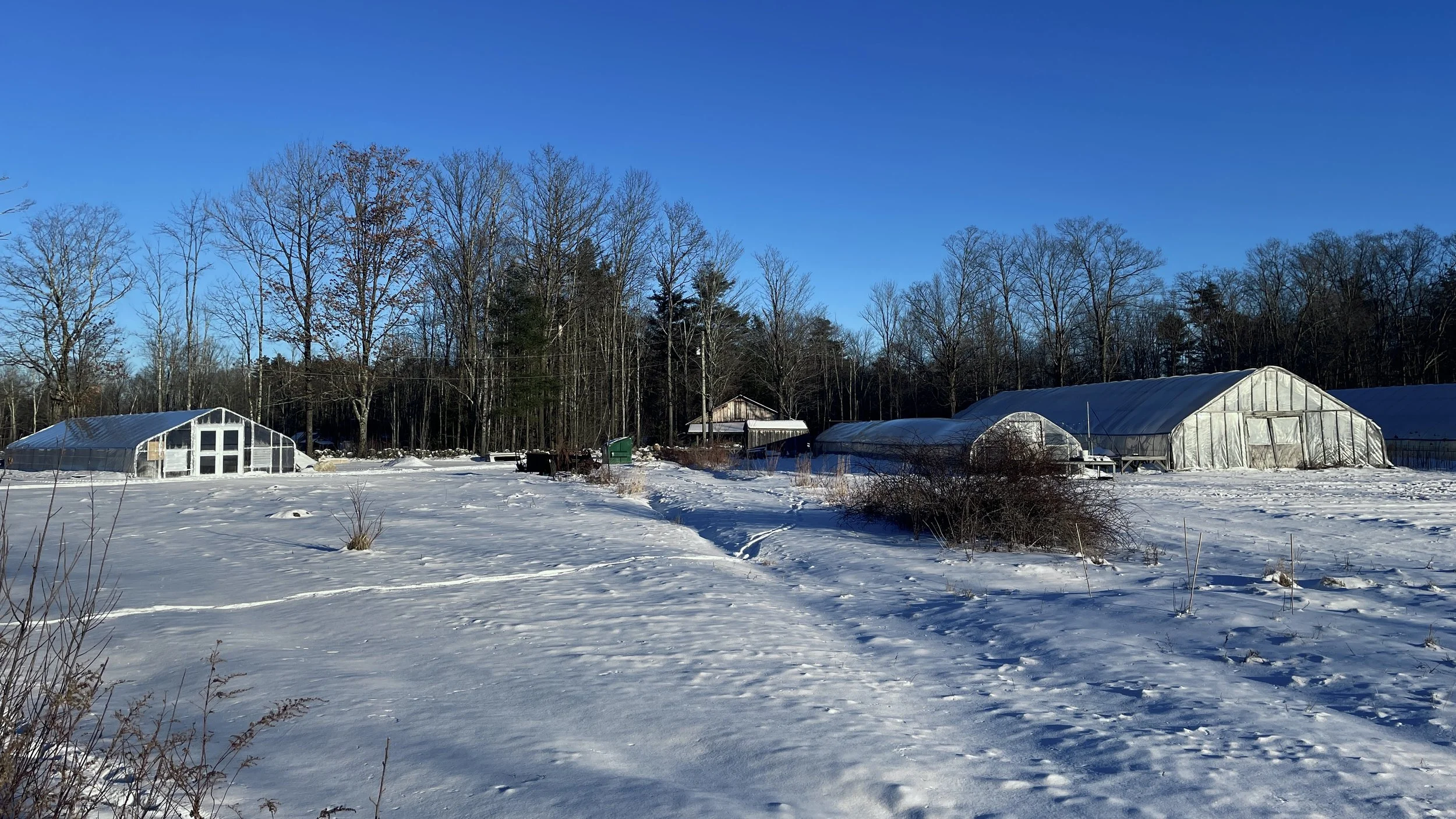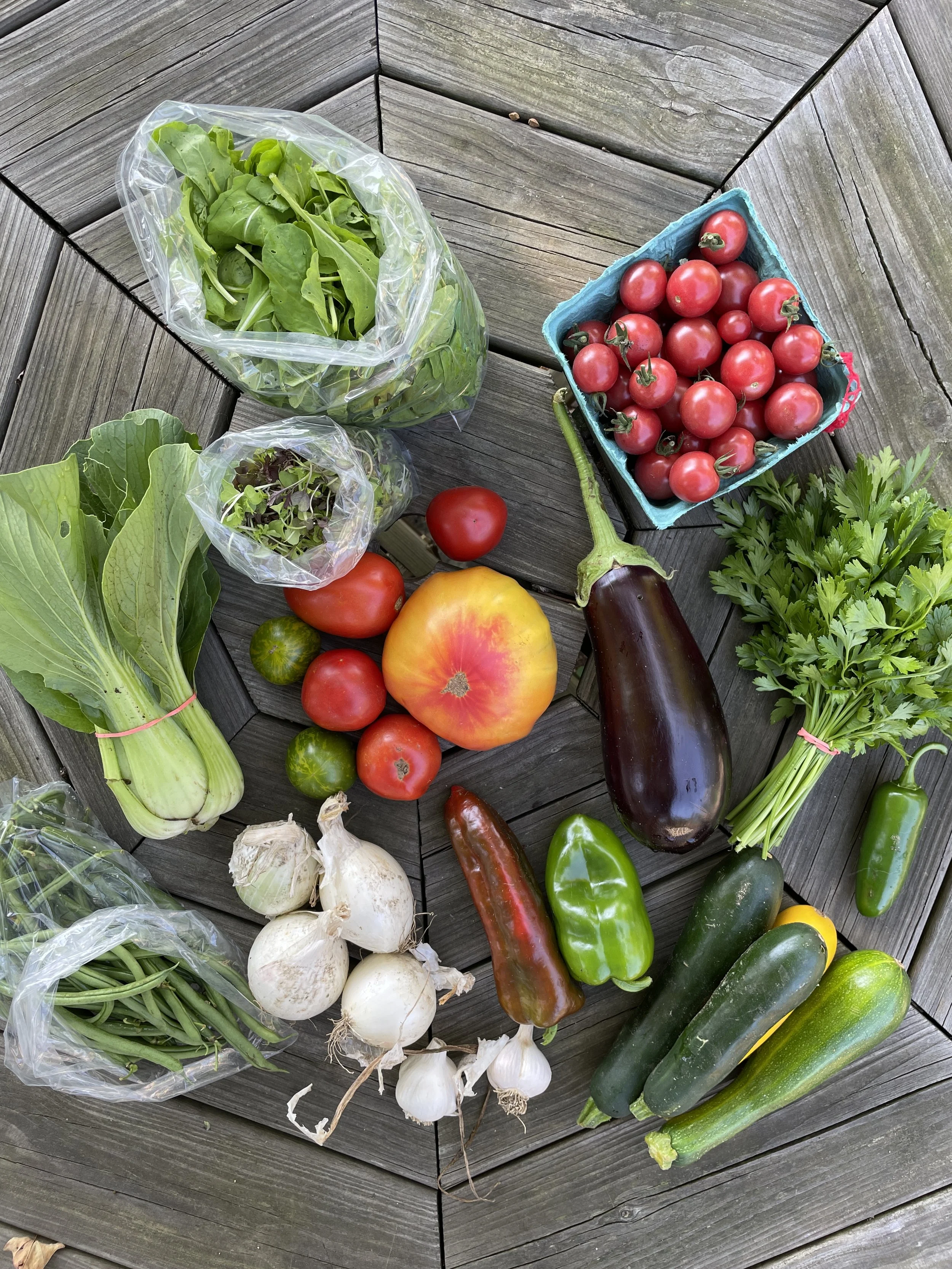Frozen on the Farm!
Greetings All from the Frozen Farm! I am not a huge fan of the cold personally, but for the farm I love it. I sleep better at night knowing that the fields are frozen solid and protected under an insulating layer of snow. It's much better than pounding rain on bare soil--which we've had a lot of so far this winter. The cold also helps control pests. As our average annual temperature has been rising over the years, more and more pests are finding footholds in New England without sustained periods of cold to knock them back each winter. It's not a coincidence that New England is known for its organic farms, and that is because historically it has been much easier to farm organically here than down south. We have a natural pest cycle interruption because of our freezing temperatures that reduces the need for pesticides. Unfortunately, warmer winters means that those cycles aren't broken as readily and we are seeing more and more pests move north. Our farm has even hosted state sponsored pest tracking to help map the northern migration of agricultural pests. So, I'll be looking forward to a few warmer days on the horizon, but I'm thankful for all the cold days we have!
The farm has been busy as we prepare for the summer growing season. I encourage members to sign up for the CSA earlier rather than later. Not necessarily because I think we will sell out of shares--although I do expect we will--but because of the spirit of CSA and the importance it holds on the farm. The beginnings of Community Supported Agriculture in the US were influenced by many different schools of thought from all over the globe, but one reason was that it offered an alternative to the conventional debt driven agriculture that dominates US farms. For many farms, the bulk of expenses--excluding labor--come in the winter and early spring. In order to cover the costs associated with starting up for the new year, conventional practices suggest opening a line of credit to cover the initial costs and paying it off at the end of the year once crops have gone to market. In CSA, that "line of credit" is held by our members who buy a share of the produce before we have actually produced it. We then reimburse all of our members through the growing season as our crops reach maturity.
Right now we are looking at some large expenses to get started up for the season. We spend about $6,000 on seeds each January, $4,500 on fertilizer, $3,000 on compost for the fields, $7,000 for field and greenhouse supplies, insurance payments are due, and we have a tractor that needs to go to the shop for repairs. One of the first offical CSA's in the country is the Temple-Wilton CSA, and a founding principle of theirs is transparency with the farm budget. CSA members are stakeholders in their business, and as such they are privvy to the transactions that make the farm run. It is something that I always admired about that farm, and transparency is one of the core principles of Dog Days Farm, as well. Shares purchased in January and early February go towards covering these early startup costs on the farm. We're lucky to have a dedicated CSA membership, many of whom have already signed up for their share. For those that are waiting, I encourage you to sign up soon! We are only a week out from our first seeding of the new year, and can use your support!
2024 CSA SHARES
Time to Sign Up for Summer and Fall CSA Shares!
Join us for another great growing season in 2024! Our summer CSA will run from June to September, and fall shares will finish out the year from October to November.
Pickup on the farm is market style on Wednesdays from 3:30pm-7:00pm. Delivered baskets are pre packed and delivered on Wednesdays by 7:00pm.
Summer Full Shares span 16 weeks and are $600.
"Floating" Half Shares pickup 8 weeks during the season and are $350.
Delivery is an additional $9/week. Half shares are delivered every other week.


